Projects
Individual Development
To the project browser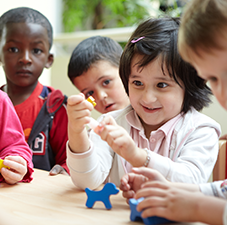
BRISE-School Readiness
The sub-project of the second project phase (2025–2029) at DIPF is dedicated to the effects of the early childhood support chain on the development of basic skills in reading, spelling and arithmetic over the course of the primary school years.

TAM
The aim is to investigate the developmental trajectories of cognitive and motor adaptation across childhood, adolescence, young adulthood and old age. We have developed a new task that has proven to be appropriate and sensitive for investigating developmental and individual differences within specific age groups.

Resilience
The Resilience project aims to evaluate two mental health promotion programmes and their implementation in everyday school life. The two support programmes are implemented by multi-professional teams (school psychologists, teachers, etc.). The results of the evaluation may help to optimise the implementation of school-based prevention programmes in the future.
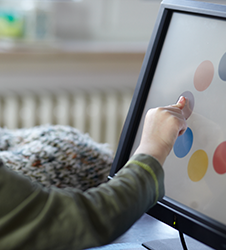
AHKi
The AHKi project aims to investigate which early temperamental characteristics and cognitive abilities can be used to identify which children are at risk of developing ADHD symptoms.
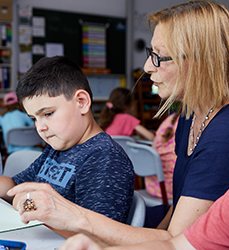
DiSeGel
The interdisciplinary network focuses on emotional violence by educational professionals towards children and young people. The network members examine how emotional violence as a phenomenon can be understood theoretically and dealt with empirically.
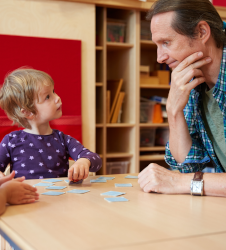
SPEAK-Phonology
The research project SPEAK-Phonology is a part of the joint project SPEAK (https://www.validierungsfoerderung.de/validierungsprojekte/speak). This part of the project focuses on developing standard values for a nonword repetiton test that was specifically constructed with multilingual children in mind. Standard values will be calculated for multilingual children between the ages of 4 and 8 and will take their individual biographies of acquisition into account.

LONDI (former OnDiFoe)
The project LONDI aims at developing a web-based platform to support the identification and treatment of children with major difficulties in learning to read, spell, and/or calculate. The platform will provide evidence-based information, materials and tools for learning disabilities screening as well as for the individual diagnosis and remediation.

Step-by-Step
A broad variety of professional modules, based on the psychoanalytical and interdisciplinary trauma research on the one hand and socio-pedagogical and educational concepts on the other hand, has been intended to offer “first steps” as a sort of first aid in the initial refugee reception Michaelisdorf and to initiate “second steps” to support the immediate and sustaining integration into Germany at the same time.
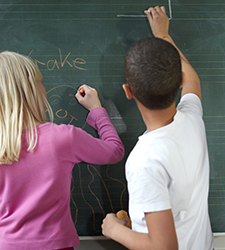
Schulreifes Kind
Scientific evaluation of a concept of compensatory educational offers for children in pre-school and primary school for the Ministry for Culture, Youth and Sports of the federal state of Baden-Wuerttemberg.
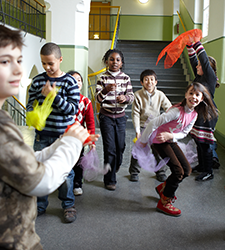
PaSS
The project PaSS evaluates the social validity of school-based prevention programmes that aim to foster social skills and reduce aggressive behaviour.